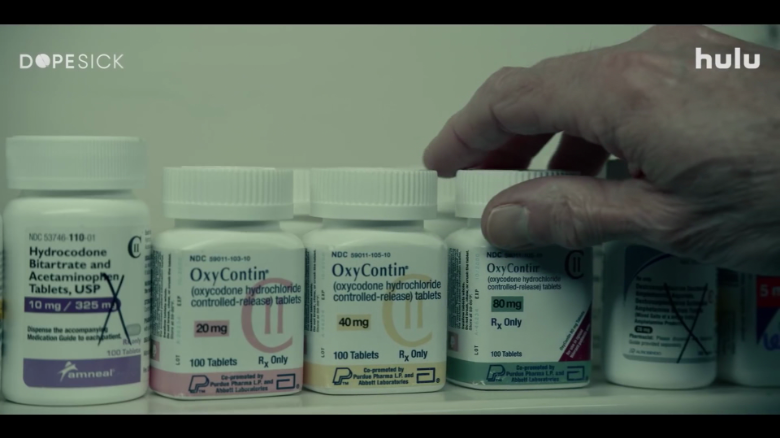(CNN)"Dopesick" is a major undertaking, exploring the opioid crisis from multiple angles, including the ground-level carnage inflicted by OxyContin addiction, Purdue Pharma's inner workings and the government personnel seeking to combat it. Scattered in places, in its totality it's an engrossing eight-part series, made more so by Purdue's bankruptcy proceedings and the Sackler family's efforts to avoid additional consequences.
"Empire" producer Danny Strong did most of the heavy lifting in adapting the book by Beth Macy, writing or cowriting most of the episodes and directing a few, joined by a star-laden cast and directors like Barry Levinson and Michael Cuesta. The result is a rich mosaic of the high-stakes marketing of OxyContin, and the way Purdue leveraged its financial clout to stave off regulators and woo doctors into prescribing ever higher doses with predictably tragic results.
It's a daunting project, seeking to focus on individual characters but also present the sweeping toll across communities, and the frustration of Justice Department and DEA employees working on parallel tracks knowing that the drug is addictive but facing one hurdle after another in pressing those cases.
Michael Keaton occupies one of the pivotal roles as Dr. Samuel Finnix, a country physician in a rural Virginia town at first reluctant to prescribe OxyContin before gradually being won over by a persistent sales rep (Will Poulter), who eventually experiences his own pangs of conscience amid Purdue's elaborate sales techniques and lavish seminars.
Other key players include Kaitlyn Dever as one of Finnix's patients, Betsy, who suffers a mining injury that results in her rising dependence on the drug; Peter Sarsgaard as Rick Mountcastle, a US Attorney leading the case; and Rosario Dawson as DEA agent Bridget Meyer, who keeps running afoul of her superiors and other agencies, with some regulators clearly recognizing, as she sardonically observes, the value of "being friendly to a potential future employer."
"Dopesick" also takes the audience inside the workings of Purdue and the Sackler family's strange dynamics, hitting its most glaringly off note in the personage of company chief Richard Sackler, played by Michael Stuhlbarg. Normally a sensational actor, Stuhlbarg plays Sackler like a mad scientist in a '40s monster movie -- a distracting (and recurring) misstep in a series that otherwise makes relatively few of them.
Then again, it doesn't require much embellishment to make Purdue look bad, from executives urging sales reps courting doctors to do "whatever it takes to win their friendship and their trust" to hiding behind official-sounding names like the "Appalachian Pain Foundation" to set minds at ease about the product's use.
"Dopesick" has a perfect companion in Alex Gibney's detailed HBO documentary "The Crime of the Century," a deep dive into the origins of the epidemic, including videotaped depositions of Sackler and interviews with former employees.
Strong and company go to great lengths developing these characters, spending perhaps a bit too much time on struggles at home, from strained marriages amid the grueling hours to Betsy wrestling with coming out as a lesbian to her religious parents.
Ultimately, "Dopesick" grapples with dramatizing a sweeping story filled with pain and corruption and brings it home on the most human of levels, in a way that antiseptic headlines often can't. And in terms of gaining the attention that this story deserves, as Purdue executives might say, whatever it takes.
"Dopesick" premieres Oct. 13 on Hulu.





